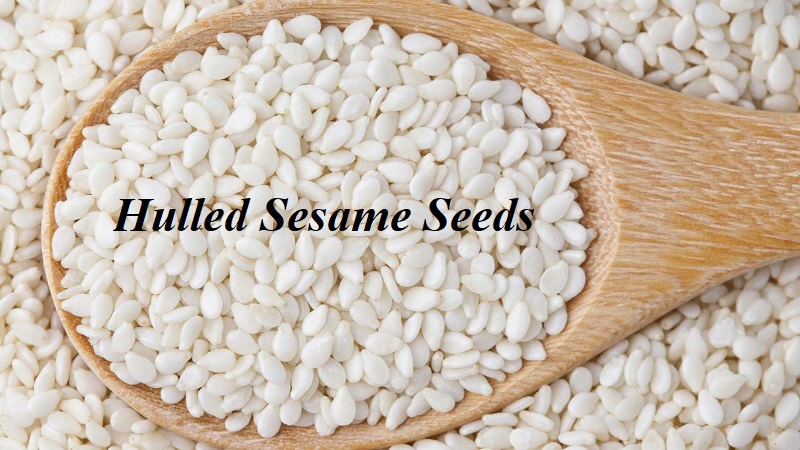Hulled sesame seeds are a popular ingredient known for their mild flavor, nutritional value, and versatility. Unlike unhulled sesame seeds, hulled seeds have had their outer husks removed, which affects their taste, texture, and nutrient composition. These seeds are used worldwide in various cuisines and are known for their health benefits, including heart health and bone support. This article delves into the health benefits, uses, and tips for incorporating hulled sesame seeds into your diet.
Nutritional Value of Hulled Sesame Seeds

Removing the outer husk of sesame seeds reduces certain nutrients, particularly calcium, but hulled seeds remain rich in healthy fats, proteins, and minerals. A tablespoon of hulled sesame seeds typically contains approximately 51 calories, 4 grams of fat, 1.5 grams of protein, and 1.5 grams of fiber. While unhulled seeds provide higher calcium and iron levels, hulled sesame seeds still offer essential nutrients, including magnesium, phosphorus, and folate, which support cellular and metabolic health.
Health Benefits of Hulled Sesame Seeds
- Heart Health: The fats in sesame seeds are primarily unsaturated, which can help reduce bad cholesterol and lower the risk of heart disease. Additionally, these seeds contain lignans and phytosterols, compounds that benefit cardiovascular health.
- Bone Health: Although unhulled seeds are higher in calcium, hulled seeds still provide adequate amounts for bone health. Magnesium and phosphorus, found abundantly in hulled sesame seeds, play key roles in maintaining strong bones and teeth.
- Antioxidant Properties: Hulled sesame seeds contain sesamin and sesamol, powerful antioxidants that help fight free radicals and reduce inflammation, contributing to overall wellness.
- Digestive Support: The fiber content in sesame seeds promotes digestive health by helping prevent constipation and maintaining a healthy gut.
Popular Uses in Cooking
Hulled sesame seeds are commonly used as a topping for dishes or mixed into foods for added flavor and nutrition. Here are some ways to use them:
- Salads and Stir-Fries: Sprinkle hulled sesame seeds over salads or stir-fries for a nutty flavor and a slight crunch.
- Tahini Paste: Hulled sesame seeds are the primary ingredient in tahini, a paste commonly used in Middle Eastern dishes like hummus.
- Bakery and Pastry Items: Sesame seeds are often added to bread, buns, and crackers, both for flavor and as a decorative touch.
- Smoothies: Add a spoonful of sesame seeds to smoothies for extra nutrients without overpowering the flavor.
Tips for Buying and Storing
To ensure freshness and maximize shelf life, store hulled sesame seeds in a cool, dark place in an airtight container. Refrigeration can further extend their shelf life, helping preserve their flavor and nutritional quality.
FAQ
Q: Are hulled sesame seeds less nutritious than unhulled?
A: While they have slightly less calcium and iron, hulled sesame seeds still offer many essential nutrients, especially healthy fats and minerals beneficial for heart and bone health.
Q: Can hulled sesame seeds help with weight loss?
A: Yes, sesame seeds can support weight management as they are high in fiber, which can promote a feeling of fullness and aid digestion.
Q: What are the primary differences between hulled and unhulled sesame seeds?
A: Hulled seeds have their outer hull removed, resulting in a milder taste and smoother texture, while unhulled seeds retain the husk and have higher calcium and iron content.
Conclusion
Hulled sesame seeds are a versatile, nutrient-rich ingredient suitable for a variety of dishes. While they contain slightly less calcium and iron than unhulled seeds, they still offer numerous health benefits and can enhance both the flavor and nutritional profile of your meals. Try incorporating these seeds into your diet to enjoy their health benefits and culinary versatility.
For more information on the nutritional and culinary differences between hulled and unhulled sesame seeds, check resources like HL Agro and The Whole Portion

Related Articles :